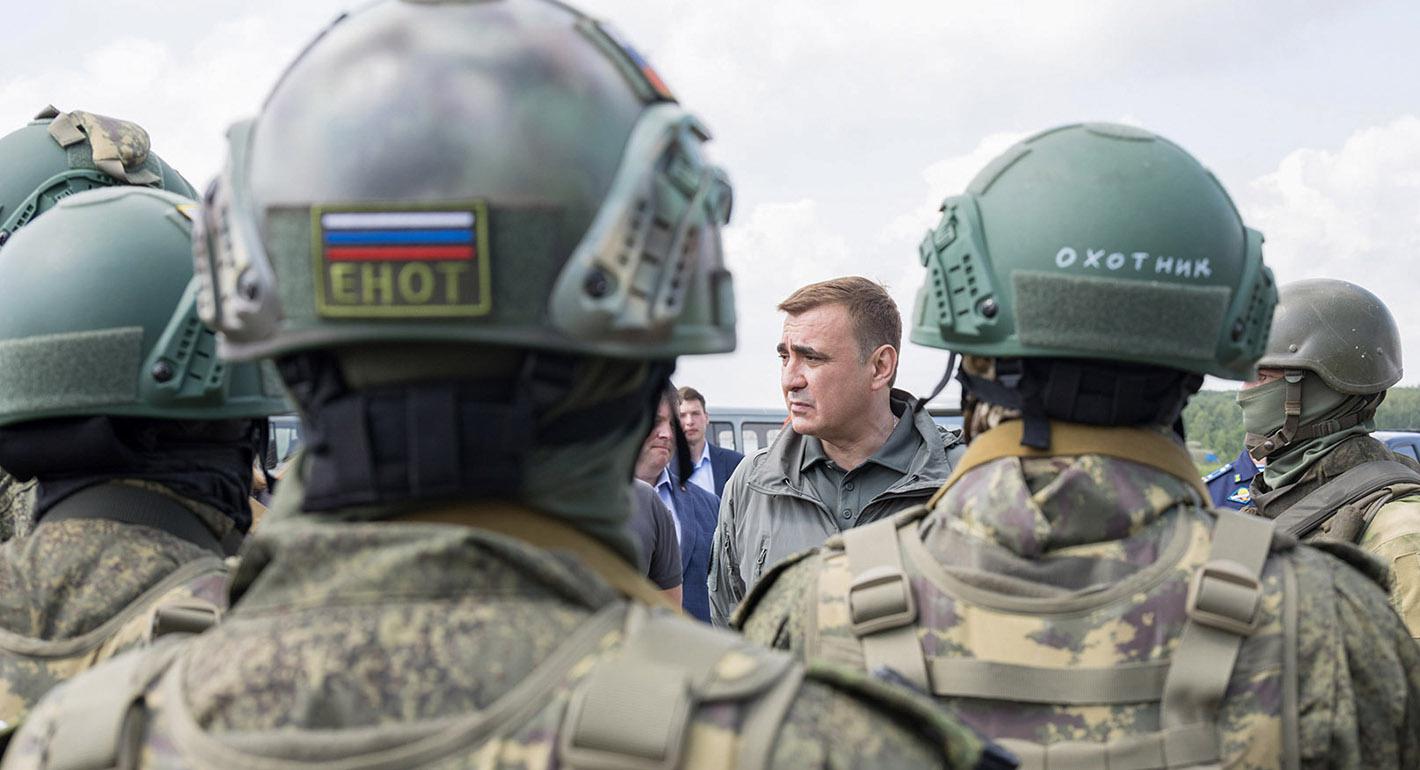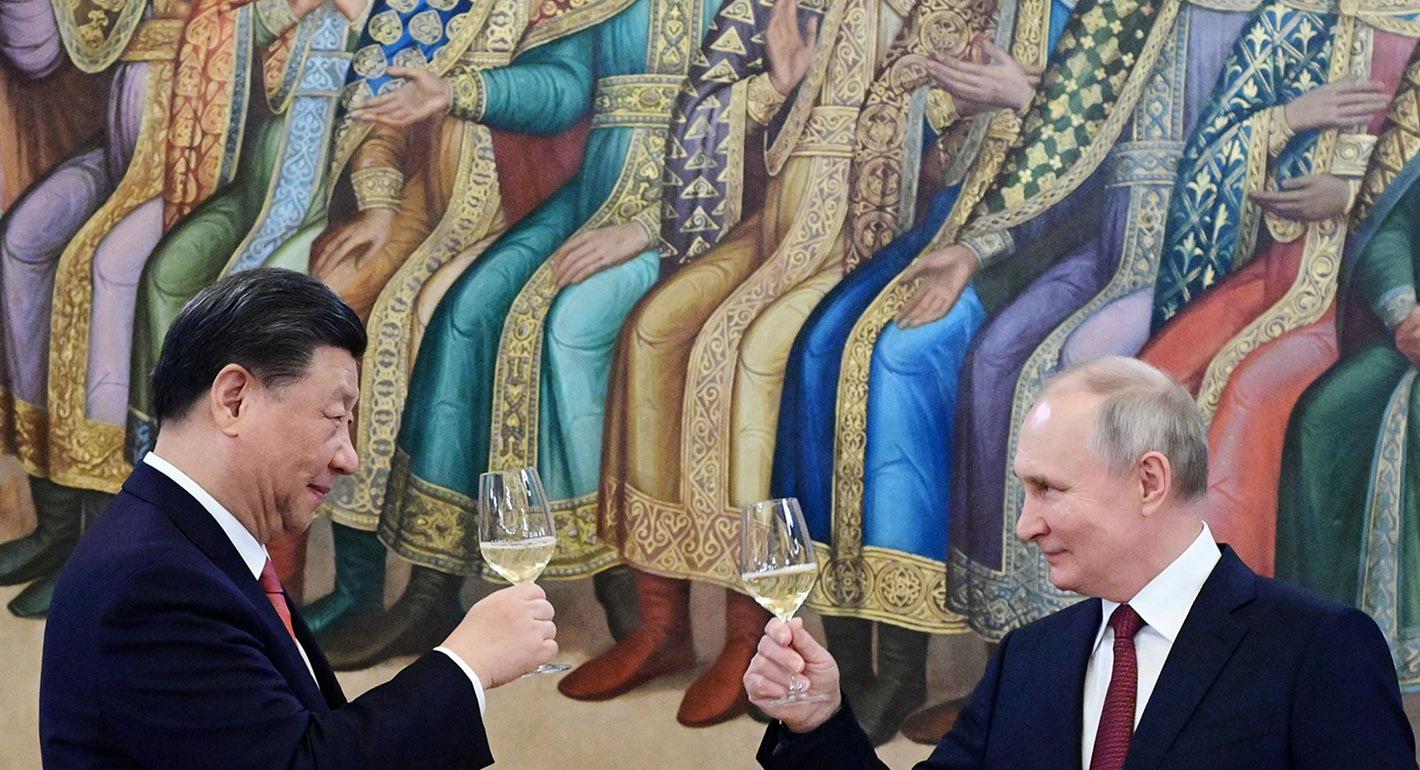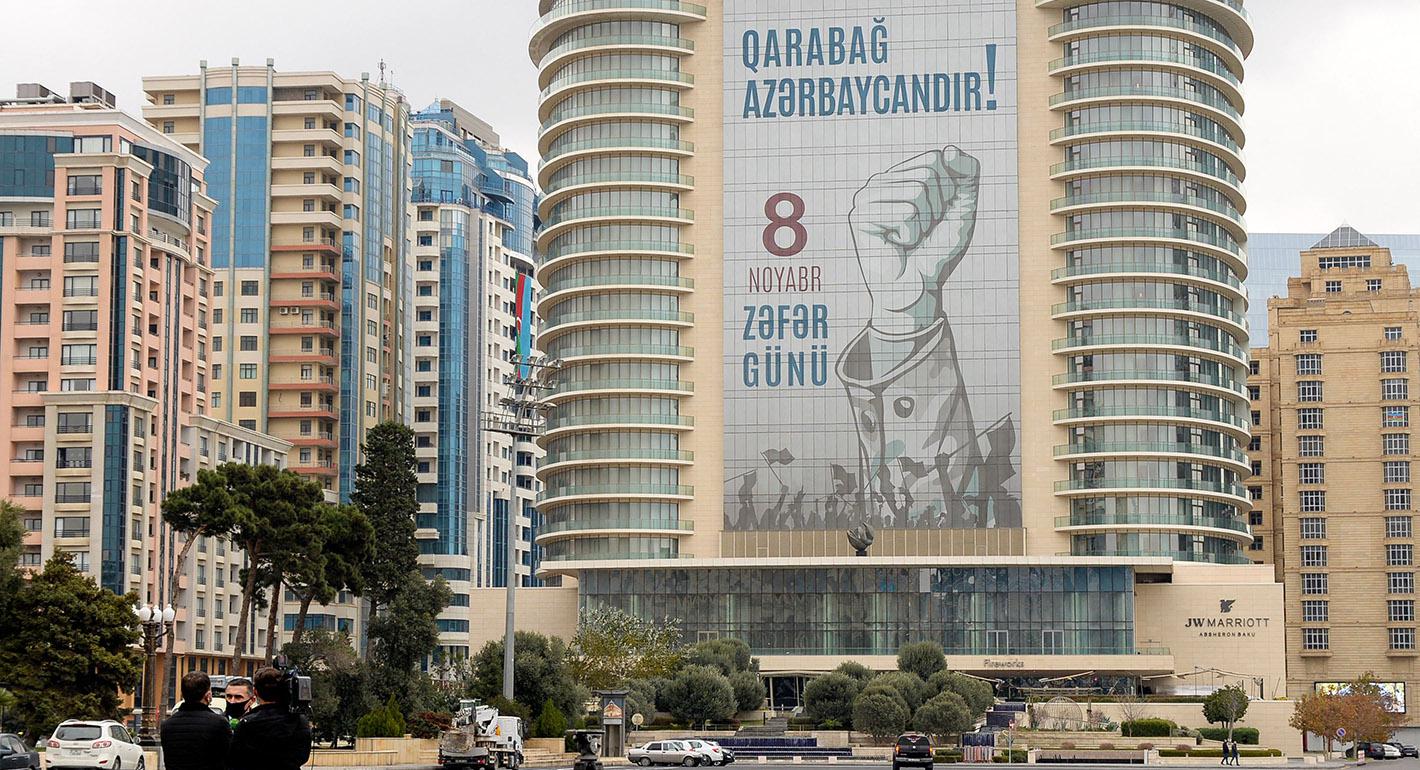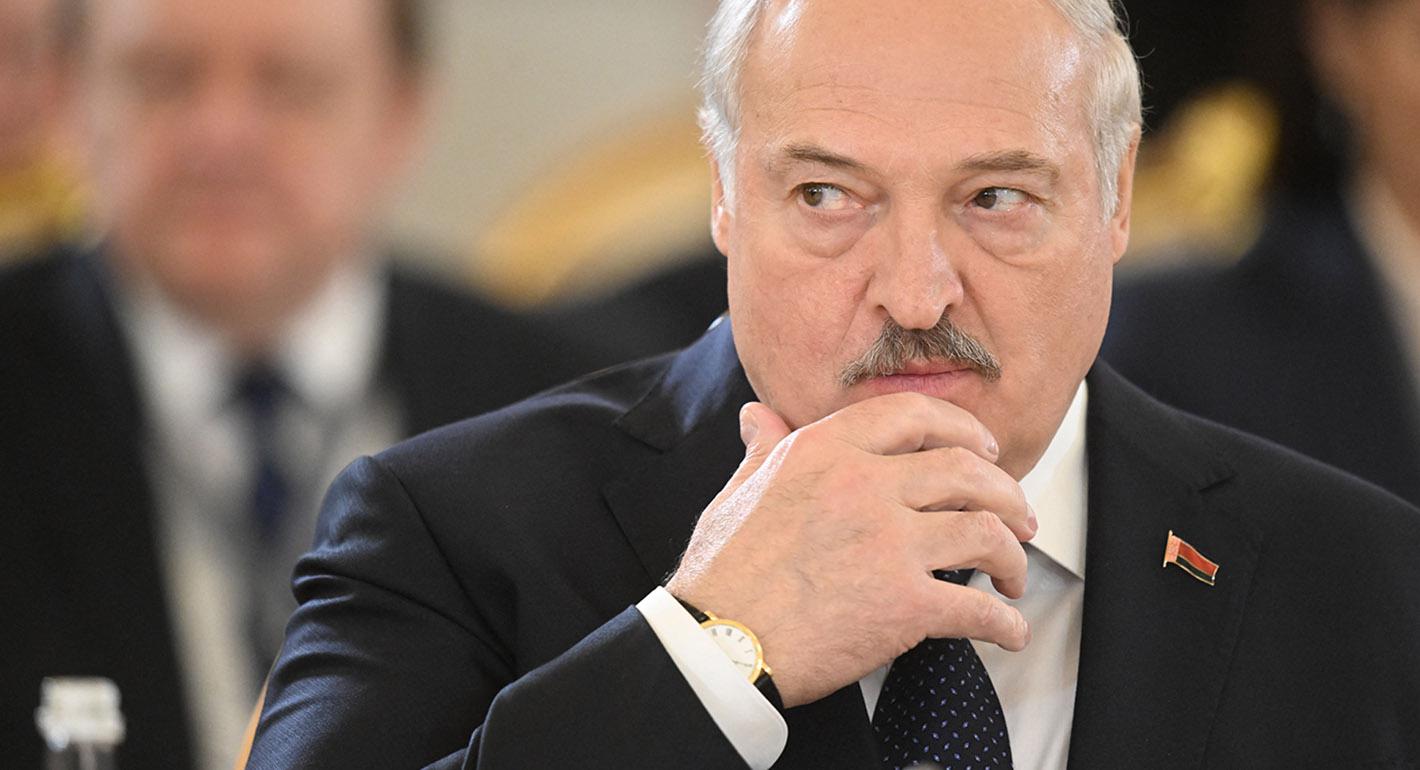The armed uprising by Yevgeny Prigozhin’s Wagner Group forced President Vladimir Putin to return to Russia’s television screens. Now, the president makes daily appearances on air: two emergency speeches (an unusual genre for the Kremlin), a meeting with security officials, and a meet-and-greet with crowds of people in Dagestan (something we haven’t seen since before the pandemic). Putin’s media appearances are now more frequent than when he began the war with Ukraine last year or announced mobilization in September.
The reasons for this are clear: Prigozhin’s “March of Justice” on Moscow was an unprecedented shock for Russian society, its bureaucracy, and security officials. It was a violation of both the unwritten rules of the game, and the laws of the Russian Federation.
While everyone was seeking explanations from the president last week, Putin only spoke publicly about a nation that had closed ranks in the face of danger and about the heroics of the security services (which had actually done nothing). Overall, Putin came across as a person badly divorced from reality. However, his behavior during the crisis was, in a peculiar way, the result of the Kremlin’s efforts to shape reality.
The two pillars of Putin’s regime are propaganda and the security services. The Wagner uprising damaged both. The Kremlin’s control over the information space was dangerously shaken at the beginning of the insurrection, when state-controlled media fell silent and the sole source of information for what was going on was Prigozhin, who put social media and his media empire to good use.
When Wagner seized Rostov-on-Don in a matter of hours, neither the propaganda machine nor the country’s leaders had anything to put up against Prigozhin’s narrative. As a result, Prigozhin was in total control of the media picture, and all information about what was going on came from him. Nobody saw the column of 25,000 Wagnerites advancing on Moscow, but everyone knew about it.
The Kremlin only seriously entered the media battle the following morning with a televised speech by Putin. The president spoke about the rebels’ hopeless position, about patriotism, solidarity, and professional soldiers. What he said had little in common with reality—all the security services did was dig up a few roads, and most civilians were busy buying foreign currency and posting memes. But Putin’s speech was not designed for the bewildered population; it was designed for the propaganda machine.
The speech provided a narrative of a patriotic nation supposedly opposed to the insurrection, and heroic soldiers bravely doing their duty. And when Putin had finished speaking, state-controlled media jumped to relay the message. Putin doubled down on this interpretation of events in his second televised address, in which he thanked the people who had rallied around the authorities. Finally, to cement the narrative, Putin met with the heads of state-controlled media outlets and a select group of war correspondents.
All this yet again proves that, for the Russian president, there are only two ways of seeing the world: his way and the incorrect way. He had laid out “what really happened” and, with the help of propaganda, it was supposed to take root in the minds of ordinary Russians.
In parallel, Putin has also been preoccupied with fixing the damage done to the second pillar of his regime—the security services. Even though Russia’s various security agencies had done precisely nothing for most of the short-lived insurrection, the president painted a very different picture. All security officers, according to him, were heroes and patriots who had prevented “the worst possible scenario” from unfolding.
In reality, facing no opposition, Wagner was able to seize Rostov-on-Don in just a few hours and establish a base in the headquarters of Russia’s southern military district (from where the war in Ukraine is managed). In the course of the insurrection, a Wagner column killed ten Russian aircrew and got to within just a few hundred kilometers of Moscow.
The way Putin sees it is that the success of the security forces lies in the fact that they resisted the temptation to go over to Prigozhin. Doing nothing was better than joining the rebels. For this “feat,” those who distinguished themselves will be thanked; those who died will be given medals; and Rosgvardiya, Russia’s National Guard, which was as silent as the grave during the uprising, will get new military equipment.
The final element of Putin’s version of events was total denial of how the uprising revealed deep disagreements within the security services and the recasting of Prigozhin from the “hero of Bakhmut” to a “businessman-traitor” who embezzled state money. Now, prosecutors will ascertain how much Prigozhin’s company Concord stole from state tenders; Wagner will be absorbed by the Defense Ministry; and the state will try and reclaim its monopoly on violence.
The uprising has highlighted a crisis of management in Russia’s political system and the huge contradiction within the Russian armed forces. But it looks like the Kremlin is not intending to take any measures in response, apart from dictating how state propaganda should frame the event.
Putin does not like taking decisions under pressure or firing long-serving officials—so Defense Minister Sergei Shoigu and Chief of the General Staff Valery Gerasimov will likely stay in their posts. Reports about the detention of General Sergei Surovikin, who was not exactly a very public figure before the uprising, look more like routine interagency fighting than anything else. Whether there will be any changes in the military leadership is, for the moment, unclear.
While Prigozhin’s uprising was clearly a result of the war in Ukraine, it’s unlikely it will lead to any thoughts about ending that war. Putin is the main beneficiary from an “endless war.”
The regime may have survived, but the damage caused will be long-lasting. While it might look like Putin has successfully dealt with the uprising’s fallout by ignoring the problem and handing out awards, in actual fact the strain on the system remains. The repressions and purges that many are now expecting will only make this strain worse.
Russia’s system of political management is in a profound crisis because it ignores real problems and just concerns itself with Putin’s perception of reality. And this crisis has only been deepened by the war and shrinking resources. Trying to fix the problems with PR and heightened fear of the security services is like trying to fix a hole in the wall with ordinary adhesive: it may be glue, but it won’t hold.
- Alexandra Prokopenko




